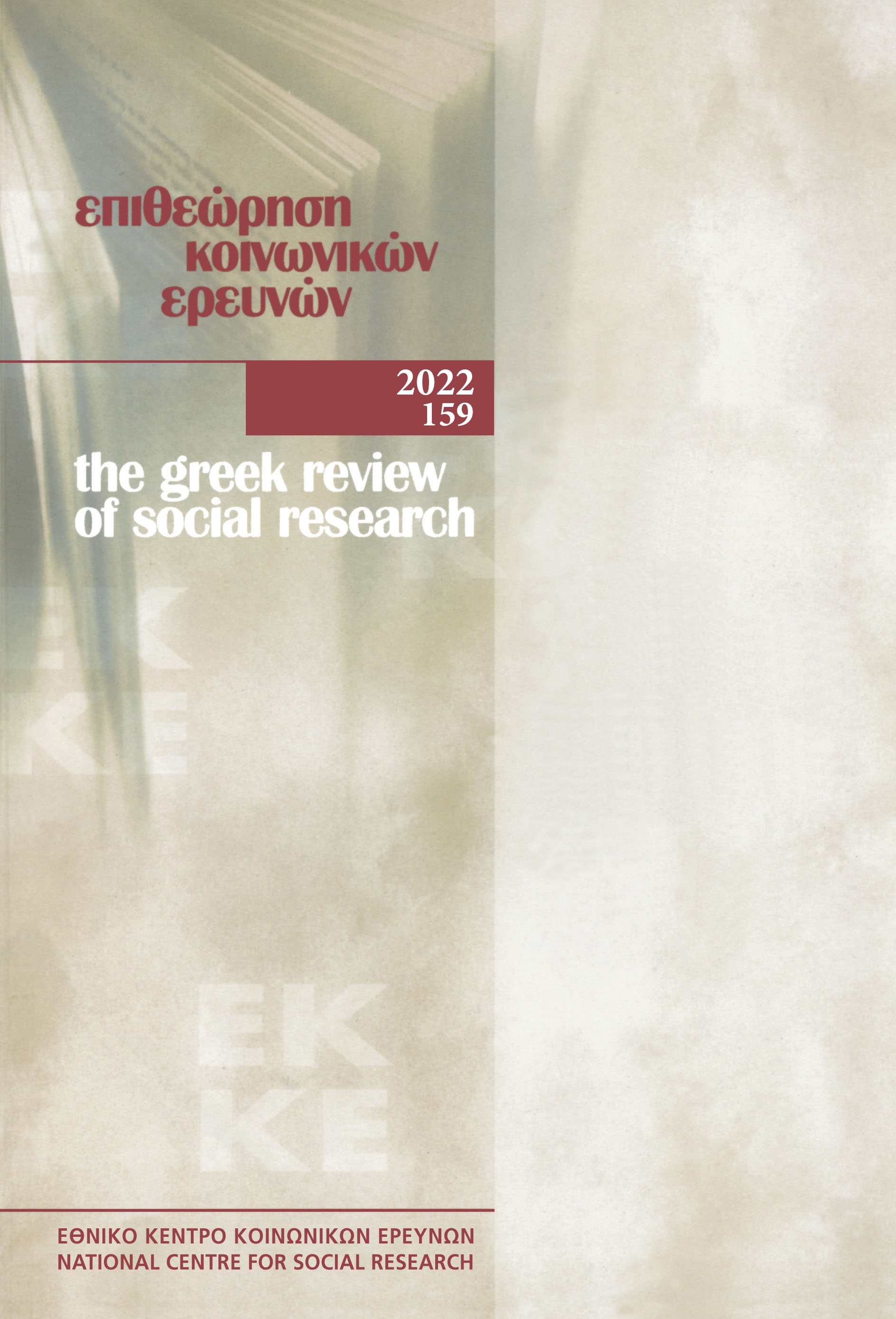Οι υπουργικές ελίτ στην Ελλάδα (2000-2019): μεταξύ κόμματος, εξειδίκευσης και τεχνοκρατίας;
Περίληψη
Στο παρόν άρθρο αναλύονται τα βασικά χαρακτηριστικά των υπουργικών ελίτ στην Ελλάδα κατά τις δύο πρώτες δεκαετίες του 21ου αιώνα, με έμφαση σε ζητήματα όπως το κοινωνικοδημογραφικό τους προφίλ, ο βαθμός ύπαρξης κομματικής ταυτότητας, η σχέση τους με τους αρχηγούς των κομμάτων, αλλά και η ανάδειξη τεχνοκρατών υπουργών. Η έρευνα αξιοποιεί δεδομένα που συγκεντρώθηκαν στο πλαίσιο της ερευνητικής πρωτοβουλίας SEGov Project για τη μελέτη των υπουργικών ελίτ στη Νότια Ευρώπη. Τα ευρήματα της έρευνας αναδεικνύουν ζητήματα, όπως η περιορισμένη παρουσία γυναικών σε υπουργικά αξιώματα, το υψηλό επίπεδο σπουδών, η έλλειψη συσχέτισης μεταξύ αντικειμένου σπουδών και υπουργικού αξιώματος, ο περιορισμός της κομματικής ταυτότητας κατά τα τελευταία χρόνια και η παράλληλη αύξηση της τεχνικής εξειδίκευσης και των τεχνοκρατών υπουργών.
Λεπτομέρειες άρθρου
- Πώς να δημιουργήσετε Αναφορές
-
Κάρουλας Γ., & Κακεπάκη Μ. (2022). Οι υπουργικές ελίτ στην Ελλάδα (2000-2019): μεταξύ κόμματος, εξειδίκευσης και τεχνοκρατίας; . Επιθεώρηση Κοινωνικών Ερευνών, 159, 57–90. https://doi.org/10.12681/grsr.30824
- Τεύχος
- 2022: 159
- Ενότητα
- Άρθρα

Αυτή η εργασία είναι αδειοδοτημένη υπό το CC Αναφορά Δημιουργού – Μη Εμπορική Χρήση 4.0.
Οι συγγραφείς των άρθρων που δημοσιεύονται στην Επιθεώρηση Κοινωνικών Ερευνών διατηρούν τα δικαιώματα πνευματικής ιδιοκτησίας επί των άρθρων τους, δίνοντας στο περιοδικό το δικαίωμα της πρώτης δημοσίευσης. Άρθρα που δημοσιεύονται στην Επιθεώρηση Κοινωνικών Ερευνών διατίθενται με άδεια Creative Commons 4.0 και σύμφωνα με την άδεια μπορούν να χρησιμοποιούνται ελεύθερα, με αναφορά στο/στη συγγραφέα και στην πρώτη δημοσίευση για μη κερδοσκοπικούς σκοπούς.
Το Εθνικό Κέντρο Κοινωνικών Ερευνών διατηρεί το δικαίωμα να δημοσιεύει, να αναπαραγάγει, να παρουσιάζει στο κοινό, να διανέμει και χρησιμοποιεί άρθρα που δημοσιεύονται στην Επιθεώρηση Κοινωνικών Ερευνών σε οποιοδήποτε μέσο και μορφή είτε μεμονωμένα είτε ως μέρη συλλογικών έργων, για όλο τον χρόνο διάρκειας προστασίας της πνευματικής ιδιοκτησίας και για όλες τις χώρες του κόσμου. Αυτό περιλαμβάνει ενδεικτικά και όχι αποκλειστικά το δικαίωμα δημοσίευσης των άρθρων σε τεύχη της Επιθεώρησης Κοινωνικών Ερευνών, αναπαραγωγής και διανομής μεμονωμένων αντιγράφων των άρθρων, αναπαραγωγής ολόκληρων των άρθρων σε άλλη έκδοση του Εθνικού Κέντρου Κοινωνικών Ερευνών, καθώς και αναπαραγωγής και διανομής των άρθρων ή περίληψης αυτών με χρήση πληροφορικού συστήματος αποθετηρίου.



